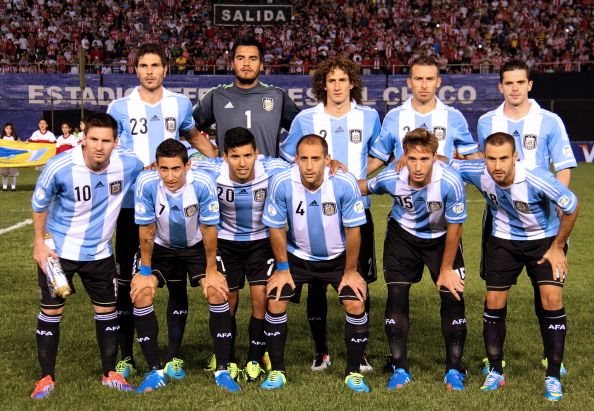
Argentina: Team Preview - 2014 FIFA World Cup
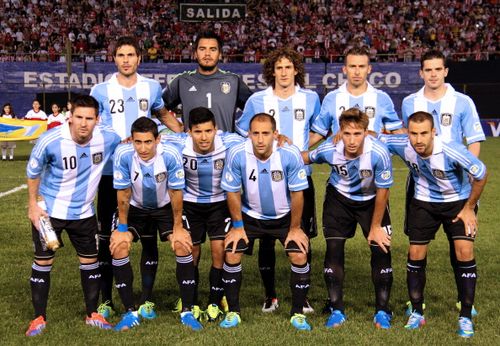
The Albicelestes have not enjoyed great success in recent World Cups, and have failed to make it to the finals since 1990. A quarter-final jinx of sorts has de-railed their previous promising campaigns, with Germany being the wreckers-in-chief.
However, the current Argentina team is unlike the earlier teams. They are more balanced and efficient, have better players and have a pragmatic coach in Alejandro Sabella. Also, any team which has a certain diminutive Argentinian with the no.10 jersey on his back has to be considered one of the favourites.
This year, they have been touted by fans and pundits alike, as the second or third favourites going into the World Cup, which starts in less than 10 days and rightly so. Argentina without a doubt have one of the best attacking units currently in the world, and with players like Lionel Messi, Angel di Maria, Sergio Aguero and Gonzalo Higuain in their ranks, they have the resources necesary to turn any game with a moment of brilliance.
Despite the plethora of attacking talent that Argentina have, they do not have the defensive solidity desired of a World conquering side. Their defence is the main weakness, a fact that has been recognized by analysts, players and most importantly, Alejandro Sabella. Unlike his predecessors, who preferred to hide this defensive flaw with a game fully focussed on attack, Sabella has tried to even the odds. The team as a result has gained immensely, and the once leaky and vulnerable defence, is now at-least a functional defensive unit.
Road to World Cup
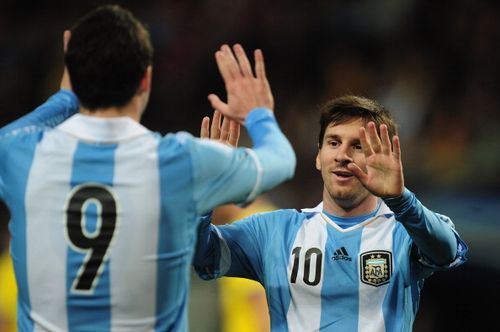
Argentina topped the nine-team South American qualifying group, finishing ahead of the likes of Chile, Uruguay, Colombia and Ecuador. While they won most of their games, they did suffer the odd loss, and to add to their woes there were the four 1-1 draws, which would have been an eye sore for Sabella.
The Albicelestes had a brilliant 2012, when their side went unbeaten for nine matches, including friendlies. It was during the same period that Lionel Messi scored 12 goals for the national team, which included two remarkable hat-tricks.
A not so comfortable 2013 followed, as recurring injury problems to key-players like Lionel Messi, Sergio Aguero and Fernando Gago among others forced Sabella to field a weakened side in some of the matches, as a result of which the team went on to lose to Uruguay, in October last year.
Qualification was never a problem for a team of Argentina’s stature, as they were consistent and duly delivered when it mattered.
Squad
The final 23-man squad which will be participating in the World Cup, has some notable absentees, with high-profile names like Carlos Tevez, Ever Banega, Javier Pastore and Erik Lamela missing. Tevez’s expulsion is probably down to the rocky relationship between him and Sabella, and because Sabella considers the mercurial forward a negative influence in the dressing room. The absence of Willy Caballero also raised eyebrows, but Sabella has shown with his selection that he isn’t afraid to take bold decisions, and that he will select only those players whom he trusts completely.
The rest of the squad was pretty much anticipated.
Goalkeepers: Sergio Romero (Sampdoria), Mariano Andujar (Catania), Agustin Orion (Boca Juniors)
Defenders: Pablo Zabaleta (Man City), Federico Fernandez (Napoli), Ezequiel Garay (Benfica), Marcos Rojo (Sporting Lisbon), Hugo Campagnaro (Inter Milan), Martin Demichelis (Man City), Jose Basanta (Monterrey)
Midfielders: Javier Mascherano (Barcelona), Fernando Gago (Boca), Lucas Biglia (Lazio), Ricardo Alvarez (Inter), Augusto Fernandez (Celta Vigo), Angel Di Maria (Real Madrid), Maxi Rodriguez (Newell’s Old Boys), Enzo Perez (Benfica)
Forwards: Lionel Messi (Barcelona), Sergio Aguero (Man City), Ezequiel Lavezzi (Paris St Germain), Gonzalo Higuain (Napoli), Rodrigo Palacio (Inter)
Coach
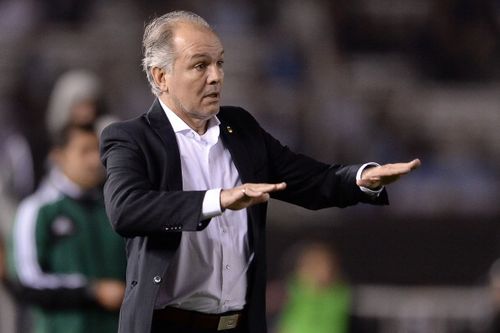
Alejandro Sabella took over the reins from Sergio Batista on the 3rd of August, 2011 after the culmination of the disastrous Copa America campaign on home soil. The national team has since only been defeated on four occasions out of the 32 games played.
Sabella had previously been associated with the Argentinian national team on two occasions, once as a player and the other as the field assistant to the then manager, Daniel Passarella (1994-1998). Sabella had won 8 caps for the National team.
In the early stages of his reign Sabella was criticized for being defensive and over cautious but we have seen his side evolve from that as they have become a cohesive unit, more than capable of producing results. His current side can counter at lightning quick speeds, are capable of ball retention and circulation and their defence which was shaky earlier, is now equipped to grind out results when required.
Due to the pragmatism of Sabella and the experimentation that has been carried out under him, Argentina now have more than a Plan A, something which will be essential and effective in the latter stages of the tournament and also against opposition who are looking to defend deep and thus are almost impossible to unlock.
Formation and Tactics
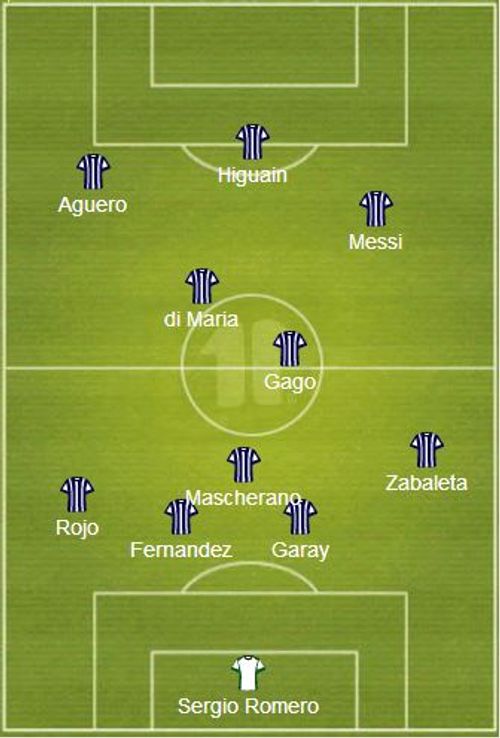
Under Sabella their preferred formation has been the fluid 4-3-3 which has been put in place to get the best out of Lionel Messi. Messi unlike his usual starting role with Barcelona, where he starts as the False 9, plays on the right wing of an interchangeable front three of Messi, Higuain and Aguero.
Javier Mascherano is the deepest lying mid-fielder in the squad, whose main duty is to protect the back four. Fernando Gago is used as the link between defence and attack, while tireless attacker Angel di Maria is seen working just behind the front three.
The central-defence pairing of Ezequiel Garay and Federico Fernandez has usually been preferred by Sabella, but their inability to deal well with air balls, may see one of either Hugo Campagnaro or Martin Demichelis come in to the side in place of one of them.
Pablo Zabaleta has been inspirational this season for Manchester City, and the same would be expected of him at right-back, while Marcos Rojo will be filling in the other full-back position.
Sergio Romero, who has barely played for his club AS Monaco, will start in goal.
Alternate formations like the 5-3-2 and the 4-4-2 have also been experimented under Sabella, who felt the need to have a Plan B and C in place, against better opponents, or in-case of the failure of Plan A, or the worst case scenario, if Lionel Messi is injured.

Best Starting XI
Formation: 4-3-3
Goalkeeper: Sergio Romero
Defence: Pablo Zabaleta, Federico Fernandez, Ezequiel Garay, Marcos Rojo
Midfielders: Javier Mascherano, Fernando Gago, Angel Di Maria
Forwards: Lionel Messi, Sergio Aguero, Gonzalo Higuain
History at the World Cup
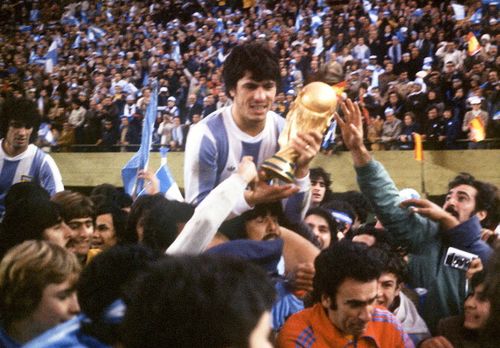
Argentina have won the World Cup on two different occasions, while having finished runners-up on two other occasions. In the first ever World Cup which was conducted in Uruguay between the finalists of the 1928 Olympics, Argentina lost to the hosts, Uruguay 4-2. It was not until 1978, that they featured in another final of the grand show-piece, winning it controversially with a score line of 3-1 after extra time against the Netherlands, who lost their second consecutive World Cup final.
In 1986, they once again repeated the heroics of 1978, as the team inspired by the then 26-year-old Diego Maradona, beat the formidable West Germany, 3-2 in the finals at the end of normal time. The German team at that time comprised of legends like Lothar Matthaus, Karl-Heinz Rummenigge and Rudi Voller, amongst others.
However, West Germany had their revenge in the next edition of the World Cup as they got the better of Argentina in the finals this time, beating them by a score-line of 1-0, courtesy of an 85th minute penalty converted by Andreas Brehme. This was the last time that Argentina featured in the finals of the World Cup.
Fun Fact: Lionel Messi is also 26-years-old, the same age that Maradona was when he guided his team to the historic World Cup triumph in 1986.
| YEAR | PERFORMANCE |
|---|---|
|
1930 |
Runners-up |
| 1934 | Round 1 |
| 1938 | Withdrew |
| 1950 | Withdrew |
| 1954 | Did Not Participate |
| 1958 | Group Stage |
| 1962 | Group Stage |
| 1966 | Quarter-Finals |
| 1970 | Did Not Qualify |
| 1974 | Round 2 |
| 1978 | Champions |
| 1982 | Round 2 |
| 1986 | Champions |
| 1990 | Runners-up |
| 1994 | Round of 16 |
| 1998 | Quarter-Finals |
| 2002 | Group Stage |
| 2006 | Quarter-Finals |
| 2010 | Quarter-Finals |
Best Performance
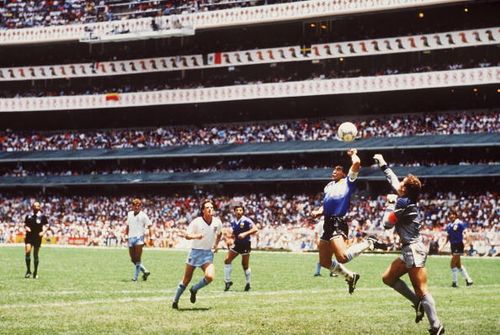
The 2 time World Cup winners arguably had their greatest campaign in the 1986 World Cup, which was held in Mexico. The World Cup is forever remembered for the 2 goals scored by Diego Maradona in the quarter-final clash against England. One of the goals has since been called the “Goal of the Century”, while the other one is the infamous “Hand of God” goal.
Argentina overcame Belgium in the semi-finals, defeating them 2-0 on the day. They then met the mighty Germans in a tense final, a tie which was turned on its head by Rudi Voller, as he equalised for Germany in the 81st minute of normal time. It was not until the 84th minute that Jorge Burruchaga settled the tie once and for all, guiding Argentina to their second World Cup triumph in eight years.
Predictions
A mercurial team like Argentina can never be considered an under-dog for any tournament and are more than capable of beating any opposition on their day. They might not have the best defence in the world, but they certainly possess the best attack in the World, which helps them even the odds.
An easy group against Bosnia and Herzegovina, Iran and Nigeria awaits them at the World Cup, which they should easily be able to win and advance to the last-16 of the tournament and book a place with a second-placed team from Group E, which consists of France, Ecuador, Honduras and Switzerland. The extremely talented squad under the able guidance of Sabella, should easily progress to the quarters of the tournament, when the tactical know-how of Sabella will play a huge part in breaking the jinx.
If Argentina are able to break the jinx, and progress past the quarter-finals there is no reason why they can’t make it to the finals, as they have done on the previous four occasions when they overcame this hurdle.
A berth in the finals, is the least that can be expected from such a talented squad, and anything less than that will be considered absolute failure. Lionel Messi, winner of all that is there to be won at the club level has one final stage, not to prove his doubters wrong, but to probably justify his status as arguably one of the best ever footballers to have graced the pitch, and the whole of Argentina will be hoping that 2014 turns out to be their lucky year.